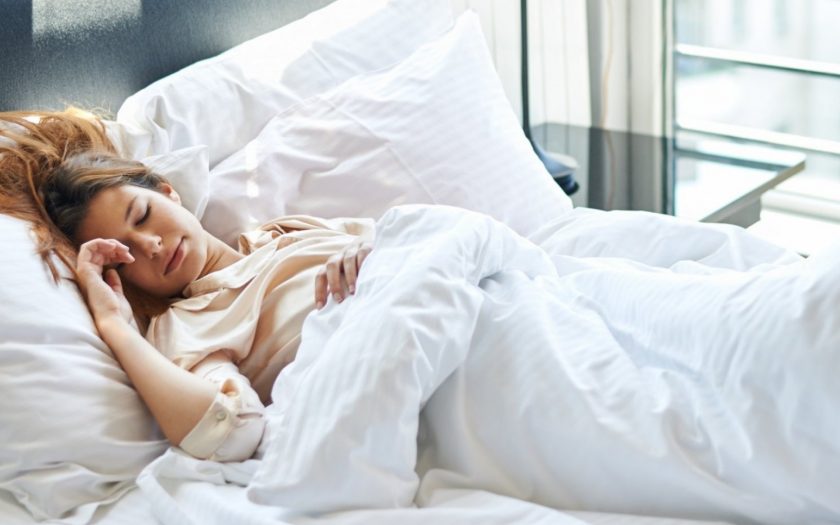It is known that good sleep brings morning vigor, good mood and even helps the body cope with illness. Conversely, lack of sleep, intermittent, restless sleep causes depression, loss of strength, reduced efficiency, leads to a weakening of the body’s defenses.
Thus, lack of sleep disrupts concentration, which is unacceptable for people of certain professions (eg, pilots, drivers, surgeons).
Sleep quality is affected by many factors.
- It is recommended to sleep in a well-ventilated room. In summer you can sleep with the window open. Shortness of breath prevents rapid falling asleep, causes general discomfort and disturbs sleep.
- The best activity before bed is a short walk in the fresh air. This will allow you to be a little active if you sit at your desk most of the day. In general, in areas saturated with oxygen (for example, near the beach), people fall asleep much better.
- Do not eat fatty, salty, spicy foods before bedtime. The most useful option is a glass of kefir or yogurt, as overeating in the evening can cause heaviness in the stomach, belching, heartburn, which will interfere with sleep. By the way, nightmares most often come on a full stomach.
- The quality of sleep can be affected by improperly selected bed linen and uncomfortable bed (ottoman, folding bed, bad sofa). It is best to choose mattresses made of natural fillers (eg, buckwheat husk). A bed that is too hard or too soft can tire your back muscles and prevent you from getting a good night’s sleep.
- Bed linen should also be made of natural materials (usually cotton). For sleep it is good to use an orthopedic pillow (but before buying it is better to consult a doctor), or regular, but, like a mattress, with a natural filler. Do not forget to change the bed linen at least once a week, and in summer use a thin blanket instead of warm.
- To sleep peacefully, you need to spend the evening in a pleasant atmosphere. Try not to think about worries, difficult things and not to make responsible decisions before going to bed. First, as you know, the morning is wiser than the evening. Second, nervous experiences can cause insomnia or trouble falling asleep, which does not bring peace.
- Also, do not sit at the computer at bedtime (especially playing games). It is not recommended to talk on the phone for a long time or watch movies and programs that can scare, excite, upset. This is especially true for vulnerable people with a weak type of nervous system.
- Before going to bed it is good to take a bath (there are, for example, special aromatic fillers for the bathroom with a calming effect based on various natural components), relax in the night light, listen to quiet, calm music, remember all the good events of the day and imagine what pleasant events may happen tomorrow.
- Don’t be afraid to take sleeping pills.
If you regularly suffer from insomnia, use sleeping pills. There are now very effective and safe remedies, such as Doxinate or Relaxedin.

